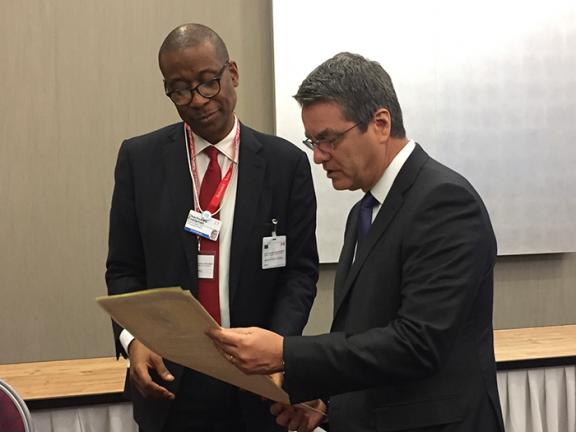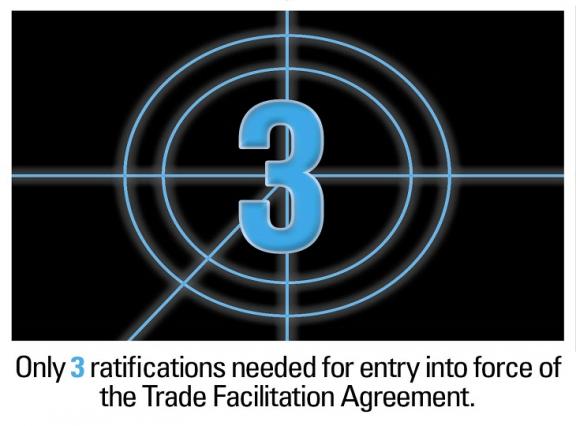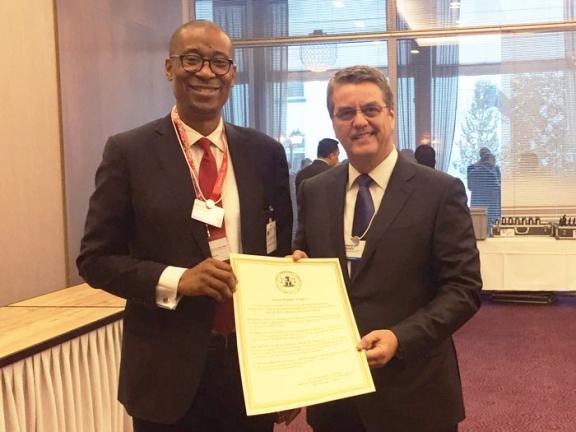Nigeria ratifies the Trade Facilitation Agreement

Nigeria has ratified the Trade Facilitation Agreement (TFA), making it the 107th WTO Member to do so. Only three more ratifications from members are needed to bring the TFA into force.
Nigeria’s instrument of acceptance was submitted to the WTO this week. Nigeria’s Minister for Industry, Trade and Investment Okechukwu Enelamah met with Director-General Roberto Azevêdo in Davos to mark the handover of the document.
“Nigeria’s ratification of the Trade Facilitation Agreement is a reflection of our commitment to the WTO and a rules-based economy. It is evidence of President Muhammadu Buhari’s commitment to rapidly implement his presidential initiative on the creation of an enabling environment for business,” Mr. Enelamah said.
“Nigeria would like to see a strengthened WTO that reflects the development principles of developing countries like Nigeria and we praise the effectiveness of DG Azevêdo in this regard,” Mr. Enelamah said.
One immediate impact from entry into force of the TFA is that all developed country Members of the WTO will start applying all of the substantive provisions of the Agreement from the date it takes effect. Developing countries and least developed countries (LDCs) will also begin applying those substantive provisions of the TFA they have indicated they are in a position to do so from the date of entry into force; these commitments are set out in the Category A notifications which 90 members have submitted to date.
The TFA has a huge potential to reduce trade costs thereby boosting trade between countries and raising world income. OECD studies find that the implementation of the TFA could reduce worldwide trade costs between 12.5% and 17.5%. Developing country exports are expected to grow between 14% and 22% while becoming more diversified. Companies are more likely to become more profitable which should encourage domestic investment. In addition, foreign direct investment is likely to be attracted to countries that fully implement the TFA. Finally, increased trade means better employment prospects for workers and greater revenue collection by the government.


